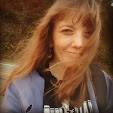Last
week I was looking through old notebooks and ran across a 2008 journal entry
written in response to a prompt about a food from my childhood. I had written
about these little freezer rolls my Grandma Sorrells made, which were actually
rather bland but took on the texture and flavor of whatever you ate them with
in a really fine and singular way. I remember how butter and homemade fig
preserves turned them into islands of sweetness and flake. I remember how my
grandma rarely made biscuits, at least not that I recall. When I found out
later in life how dangerously good a big old buttered cathead biscuit could be,
I thought about the little rolls and how Grandma used to bake them by the dozen
for us and for her best friend, an African-American woman named Claudia with
whom she worked at the local primary school cafeteria. I wish I knew how to
bake them myself. Possibly my father has the recipe. I will have to ask him.
Thinking
about the little rolls got me to thinking too about White Lily flour. It’s the
best flour you can bake with, the Southern foodways people I know assert. It’s
supposed to yield fluffier cakes, more perfectly textured bread. Lighter
biscuits? Maybe. I’m not sure, though,
that biscuits are meant to be light. I think of them as intense and
substantive, dense and strong. If they were light, maybe they’d lose some of
their heft and power. Maybe I just haven’t had the right biscuits yet. I don’t
eat them much anymore. Hardly ever, really.
At
any rate, White Lily flour does have a luster and pearly softness that make it
sweet to touch on tabletops, and other places, too. I’m not any sort of expert
so I don’t know what makes it like that, what turns it into a sift of loose
satin, like something a Vermeer model might choose to bake bread with. My grandma
was an expert, though. Her reverence for the gentle softness of flour and the
alchemy surrounding it makes me think now about cornmeal and its holiness,
about the scatter of it around the dancing katsina spirits at Hopiland several
summers ago. I think about the flung goldenness of it on a warm September wind
at the Etowah Indian Mounds, and about my dear old friend John, who flung it,
and who died last June at the age of 52.
Ceremonially, White Lily has a sacred quality to it that I surmise is borne
of its capacity to bring sustenance, to make a meal, to build up blood and bone
and brain and vision. It’s the raw stuff of spirit despite its tangible
delicate softness. It becomes a tribute, maybe even a conduit, for those who
use it to mark sacred time and honor ancestors. It brings things into an
awareness of their commonality in a Body. I think about White Lily and wonder
how odd it would seem if I headed out to the big old rural cemetery where my
grandma is buried, north of Monroe, and dusted a fine skein of flour around the
flat metal plate that marks her grave. I don’t think I’ll do that, but not
because of the strangeness of the act or of what anyone might think about it.
It just doesn’t feel like my grandma is there, beneath that grassy space with
its dozens of unperturbable little memorial flags and lopsided flower
arrangements made of plastic and cheap cloth. A better spot to put the flour
would be around the steps of the old two-room schoolhouse at Sorrells Springs where
my grandma went to school and graduated from the eighth grade in 1926. (It was
as far as she got with her education; her family was large and far from wealthy
and needed her to help work in what she referred to as “the field.”) The
silkiness of the flour would hang around beside the concrete steps and the
stones holding up the foundation of the old schoolhouse until rain fell or wind
dispersed it. I doubt it anyone would notice. Not very many people visit the
schoolhouse now. Still, it’s the place where my grandmother, Ruth Williams
then, won her school spelling bee and received a bright blue ceramic bell edged
with goldleaf as a prize. I don’t know what else she did there. Maybe she
played with her dog Jack, shared a secret with a friend, or smiled at my
grandfather or another boy. The milkweed and dandelions beside the old
schoolhouse feel like a place where soft pale petals of floursilk could settle,
a mattress of feast for ants and hornets in summer. A feeding hole of
remembrance and acknowledgment bowing to the Body of ancestry that led people
in the neighboring church to wash each other’s feet in big bowls or maybe in
the running water of the spring. The flour-body would become a blessing, a way
of saying with reverence and love, “All my relations!” before settling shyly into
the waiting cimarron clay.
©Laura Sorrells 2012
all rights reserved










